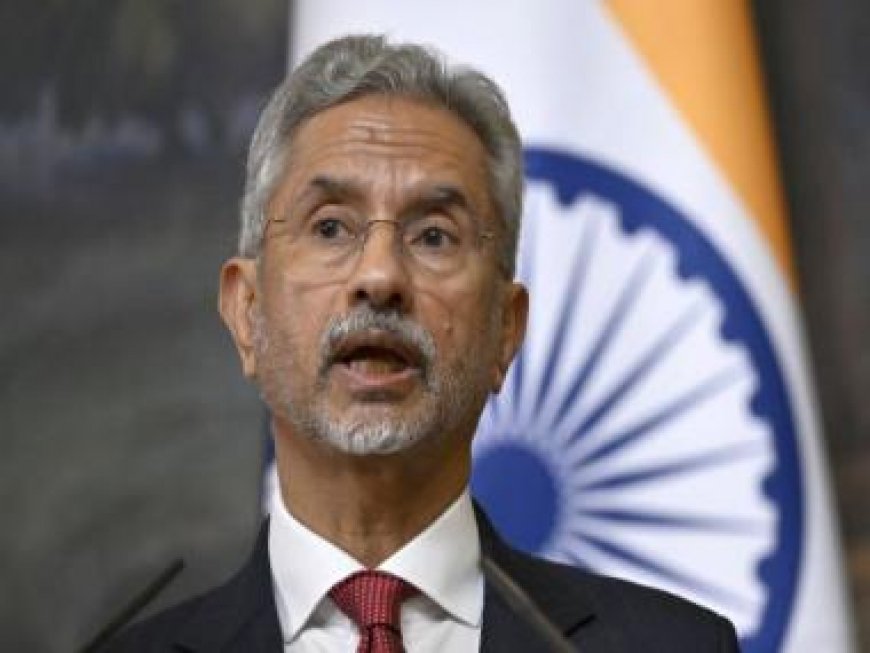Globalisation being 'weaponised' in various ways by dominant players, says EAM S Jaishankar
Globalisation being 'weaponised' in various ways by dominant players, says EAM S Jaishankar

External Affairs Minister S Jaishankar, during his official trip to Nigeria, on Monday said that globalisation is being “weaponised” in various ways by dominant players and added that the phenomenon has designated currency, trade and tourism as “weapons”.
He stressed that those in control of the world order established in 1945 are reluctant to create more opportunities.
Jaishankar observed that powerful entities leverage their significant market shares on the global platform to pursue specific national goals, acknowledging both the positive and negative aspects of globalisation.
Addressing the Nigerian Institute of International Affairs in Lagos, Jaishankar said, “When I spoke about globalisation and concentration, a different challenge emerging out of that is how globalisation itself has been weaponised, that today currency is a weapon, trade is a weapon, tourism is a weapon, that dominant players they may be dominant as producers they may be dominant as consumers that they often with very little hesitation leverage their market shares on the global system for their particular national purpose.”
“Of course underlying all of this since this is an Institute dealing with International Affairs is a challenge that we know very well which is a world order that was devised in 1945 when the members of the United Nations were roughly 25 per cent of what they are today and that world order continues obstinately because those who are in the driving seat don’t want to create more seats for other people to be at that engine,” he added.
The Union minister observed that the world order, which was at its natural diversity, was distorted by Western domination.
“The world was diverse and it was distorted by the period of Western domination and in a post-Colonial world today, restoring that natural diversity is actually a collective objective. Now what are the challenges to that process one, of course, is while many of us attained independence, we have all built our Nations and societies,” said Jaishankar.
Highlighting the significance of the Global South, he said Global South is about a “mindset, a solidarity and a self-reliance” and without the advancement of the Global South, the world is not going to see planetary progress.
He said the global agenda today is on promoting rebalancing and multipolarity, thereby restoring the world to its natural diversity.
The global conversation today is focussing “on the advancement of the Global South because without the advancement of the Global South, we are not going to see planetary progress”, Jaishankar said.
However, this global conversation, the minister said, by its very nature is constantly distracted.
“Some crisis happens, some big event happens, some other agenda comes in place. And the global conversation then boggles, it goes off track. People lose that sense of focus about what are the priorities,” he said.
“So one of the big achievements of our (India’s) G20 presidency was that, after some experience with a very polarised divided world, which was very much, I would say, focused on one particular region…we were able to bring back the attention of the Global South,” the minister said.
Meanwhile, Jaishankar on Monday co-chaired the 6th Joint Commission Meeting between India and Nigeria and said that both the sides have agreed to strengthen efforts in a slew of sectors, including people-to-people exchange, energy, mobility and consular cooperations.
The Joint Commission meeting, which Jaishankar co-chaired along with his counterpart Yusuf Tuggar, also discussed opportunities in the sectors of energy, power, renewables, transport, healthcare, fintech, agriculture, and security between the two countries.
Co-chaired the 6th Joint Commission Meeting along with FM @YusufTuggar. Noted the expansion of our economic cooperation, especially trade and investment. Discussed new opportunities in energy, power, renewables, transport, healthcare, fintech, agriculture and security,” Jaishankar said in a post on X.
Earlier, he arrived in the Nigerian capital Abuja from Lagos, which he reached on Sunday after attending the Non-Aligned Movement (NAM) Summit in Uganda.
With inputs from agencies
What's Your Reaction?



























































